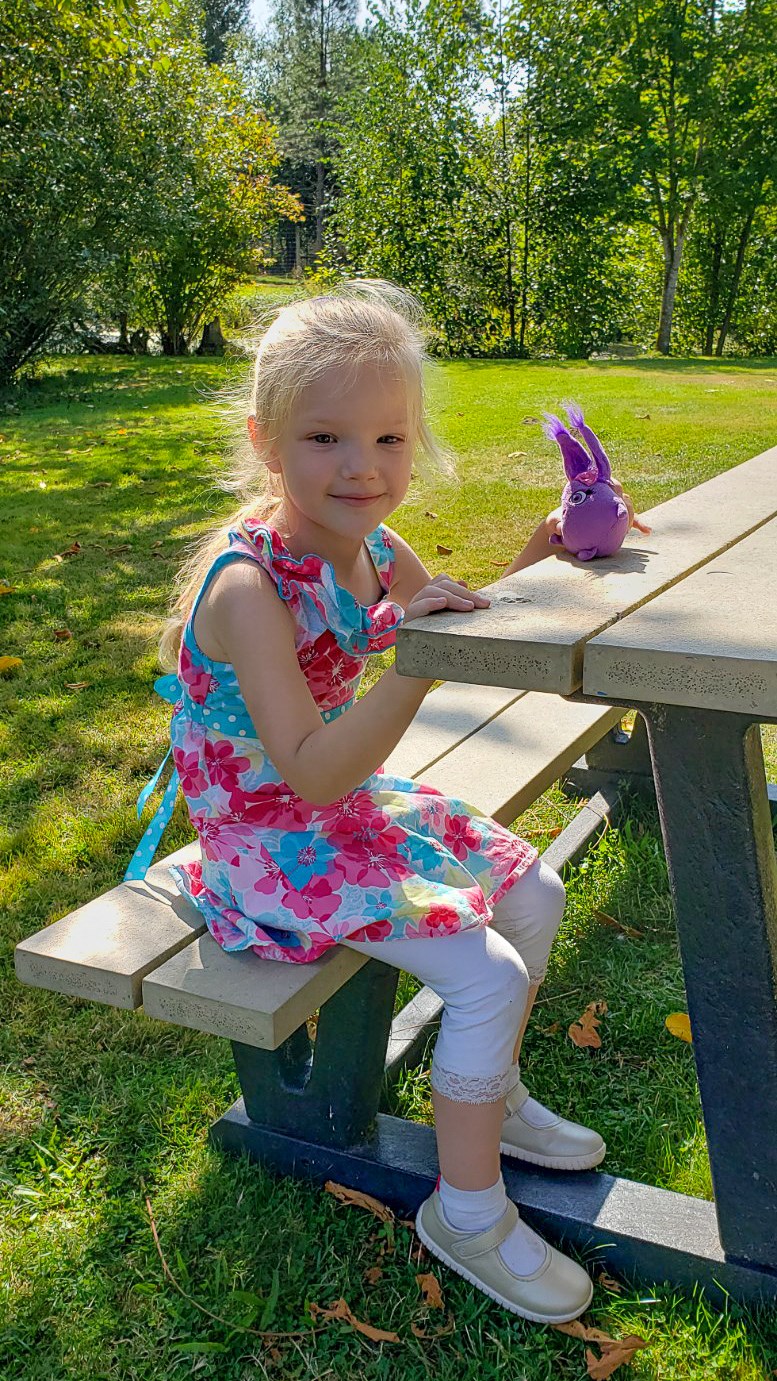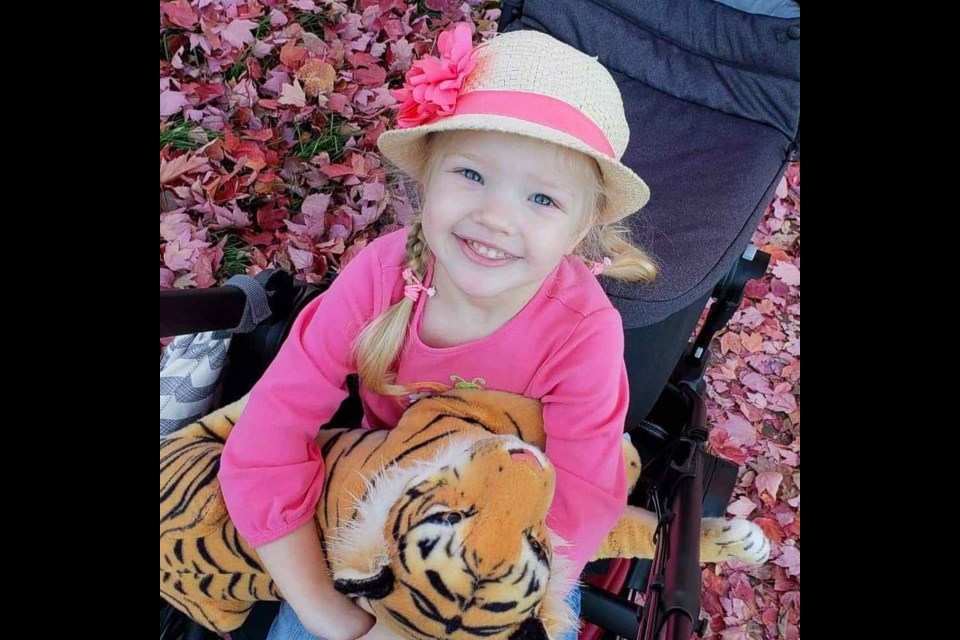A Port Moody mother is asking for help as her four-year-old daughter struggles to cope with a rare and incurable brain malformation — a debilitating condition as the young girl gets set to start kindergarten.
Svetlana Kovaleva first noticed something was wrong with her daughter Alisa when she was about six months old.
“She couldn’t sit. She kept folding like a sandwich,” said Kovaleva.
Six months later, Alisa was accepted into an infant development program that provided monthly consultations. But by two and a half years old, Alisa kept missing every milestone, from walking to talking.
“It scared me,” said the mother, who by 2018 was pregnant with her third child.
Desperate for answers, she called BC Children’s Hospital and, through tears, left a voice message seeking for an MRI scan for Alisa. By June, she had the results: Alisa had a rare brain condition known as subcortical band heterotopia (SBH), or double cortex syndrome, an abnormal brain development that usually affects females and occurs when bands of neurons cluster in parts of the brain they’re not supposed to.
Symptoms can range from severe intellectual disability and epilepsy to normal intelligence with mild or no epilepsy, according to the US Genetic and Rare Diseases Information Center.
Alisa struggles with spatial awareness and speech, says her mother. She has fallen twice and broken her teeth, once about a year ago, and once a couple of weeks ago.
“She has bruises on her hands, feet and head,” she said. “She cannot manage her body.”

In addition, Alisa was diagnosed with autism, which, while adding more stress, also gave the parents access to $22,000 from the provincial government for treatment.
Last November, Alisa started going to speech language pathologists, occupational therapy and physiotherapy, and since that time, Kovaleva says Alisa began speaking her first words — amazing progress, the mother says.
But with specialist fees running $130 per hour three times a week, the $22,000 was quickly depleted. Kovaleva has been on maternity leave with her youngest child over the last year and as Alisa readies for kindergarten, the parents are crossing their fingers that she will cope.
“We’ll see how it goes. If she won’t be able to settle, she’ll probably come back to the daycare,” said Kovaleva, who is stuck with the prospect of going back to work so she can also support her other two children.
Even if things go well at school, Alisa will still need extra help if she’s to have a shot at walking properly or speaking more than a few words.
Thus, Kovalev has set up a GoFundMe page to help the family with the costs of therapy.
“It’s really unpredictable. I don’t know when she’ll have epilepsy. I don’t know if she’ll be able to study. I don’t know how well she’ll be able to adapt. I’m dedicated to helping her gain those life-skills but she could lose them [with the onset of epilepsy].”
“I cannot fix her,” she said. “I have to find another way.”



